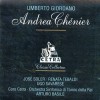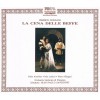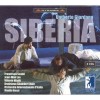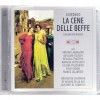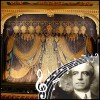| Country: | Italy |
| Period: | il Verismo |
Biography
Umberto Menotti Maria Giordano was an Italian opera composer, whose operas always have a continuous orchestral texture. All of Giordano musical works were always typical and tined with a prominent operatic style known as Verismo. Verismo style became popular during the 1890's, when there was a trend to attempt and put realistic characters, situations, and emotions on the stage. The best composers of Verismo style were Mascagni, Leoncavallo and Puccini.
Giordano’s operas were also typically similar to earlier Italian opera. Mostly the feature motives of Giordano’s operas were associated with some specific characters of that time. Especially, Giordano’s Verismo operas were often based on contemporary settings and costumes, with characters drawn from common life (especially taken from the lower classes).
Giordano’s best known operas like Andrea Chénier, Fedora, and Siberia contained many characteristics of Italian opera composers, that were born after 1850, including Catalani, Franchetti, Puccini, and Mascagni.
Menotti Maria Giordano was born on August 27, 1867 in Foggia in Puglia, southern Italy. Giordano’s father was a talented chemist. He wished to see Giordano as a fencing champion, but Giordano had musical aspirations. Thus, despite his parent's objections, Giordano got admission in Naples Conservatory in 1882. There Giordano studied for seven years under the supervision of Paolo Serrao and composed his first opera, Marina, for a competition sponsored by the publisher Edoardo Sonzogno.
Giordano’s “Marina” was proved as the best one-act opera in that competition. Marina still enjoys a solid reputation today as it marked the beginning of Italian Verismo. Giordano, who was youngest candidate of this competition, won 6th position, among the seventy-three candidates.
Giordano’s Marina generated enough interest and attraction for Sonzogno and he commissioned the Giordano to write his next work, Mala vita, which was performed in Rome in 1892. Giordano’s “Mala vita" which means "the miserable life" was considered scandalous by Italian audiences when it was performed at the Teatro Argentina, Rome, in February 1892.
“Mala vita" was regarded as scandalous, as it was a gritty Verismo opera and contained an unrelenting depiction of a Neapolitan prostitute's wretched existence. It was also concerned by labourers, who vowed to reform a prostitute. But despite a lot of criticism, Giordano’s “Mala vita" gained great popularity in Austria and Germany. Giordano’s “Mala vita" was also successfully played at Vienna, Prague and Berlin.
After Mala vita" Giordano tried a more romantic approach with his next opera namely “Regina Diaz” with libretto wrote by Giovanni Targioni Tozzetti and Guido Menasci in 1894. Later on this opera also faced a failure just after it’s two times staged performances.
Then, Giordano began composition of his next best known opera namely Andrea Chénier the same year. He moved to Milan, and returned to Verismo with finished work in 1896. Giordano’s André Chénier was based on the life of the French poet namely André Chénier. The libretto of this opera had been written by Luigi Illica and Alberto Franchetti.
Giordano’s Andrea Chénier was performed at La Scala on March 28, 1896. Giordano’s Andrea Chénier became a very successful opera and the best known Giordano's operas; it was performed throughout Europe as well as in New York in subsequent years.
After the wonderful success of Andrea Chénier, he worked on his next opera, Fedora, which was based on Victorien Sardou's play and was completed in 1898. Giordano’s Fedora was also well-received by audience and it was proved as the Giordano’s second best known opera. It is still performed throughout the world.
Giordano’s next opera, Siberia, which was premiered in 1903, proved also successful, but after the completion of Siberia, Giordano's career went into decline until the creation of La cena della buffe in 1924. Although Giordano’s later works was less known, but still it was occasionally revived. Giordano’s final composition for the stage was Il re, a one-act opera that premiered in Milan in 1929. This great Italian opera composer died in Milan on 12th of November in 1948.





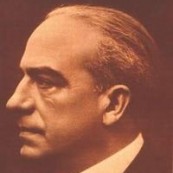

![Maria Callas - Lyric and Coloratura Arias (1954) [Remastered 2014]](http://static.classicalm.com/repository/disk-cover/small/4997-img1427301969527579.jpg)




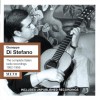
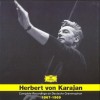


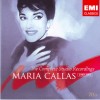


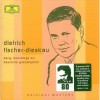

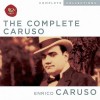
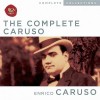
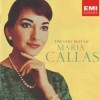

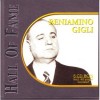
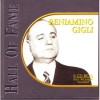
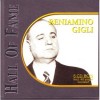
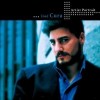

![Magda Olivero - The Famous Amsterdam Concerts 1967-1968-1972 [CD2of2]](http://static.classicalm.com/repository/disk-cover/small/3532-img1403351457668273.jpg)
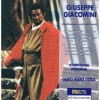

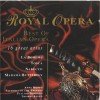

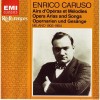


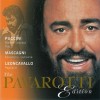

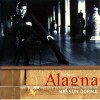
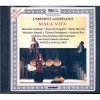
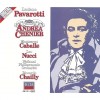
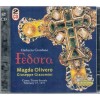

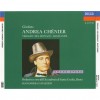
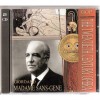



![Giordano - Andrea Chenier, de Fabritiis [Huder]](http://static.classicalm.com/repository/composition-cover/small/22360-img1419074927329721.jpg)
![Giordano - Andrea Chenier, Votto [Callas]](http://static.classicalm.com/repository/composition-cover/small/22361-img1419075994139073.jpg)

